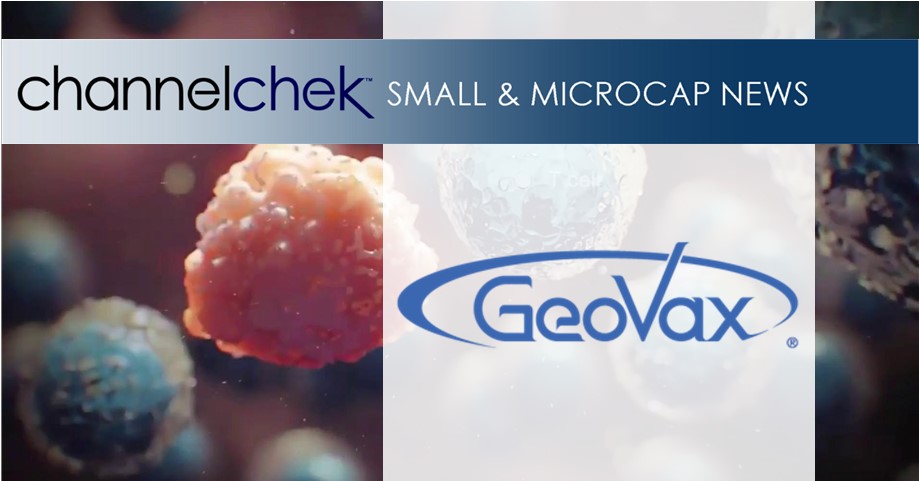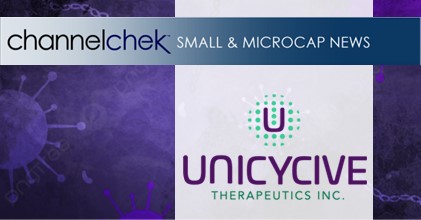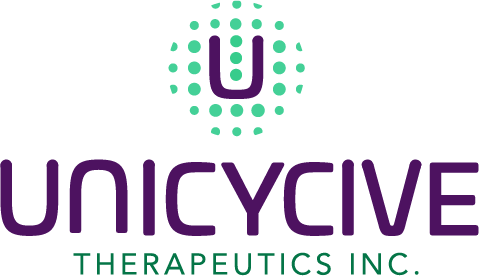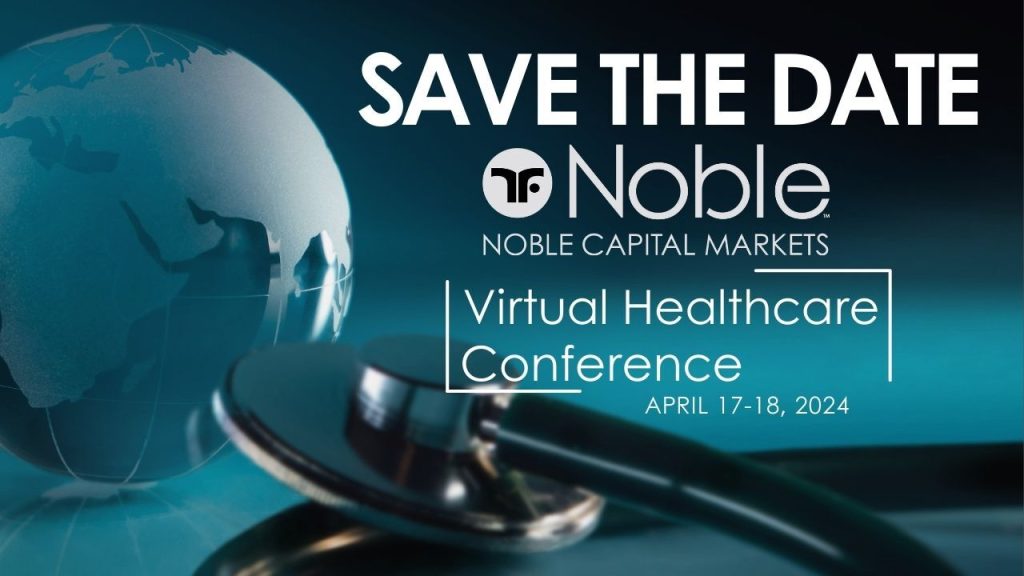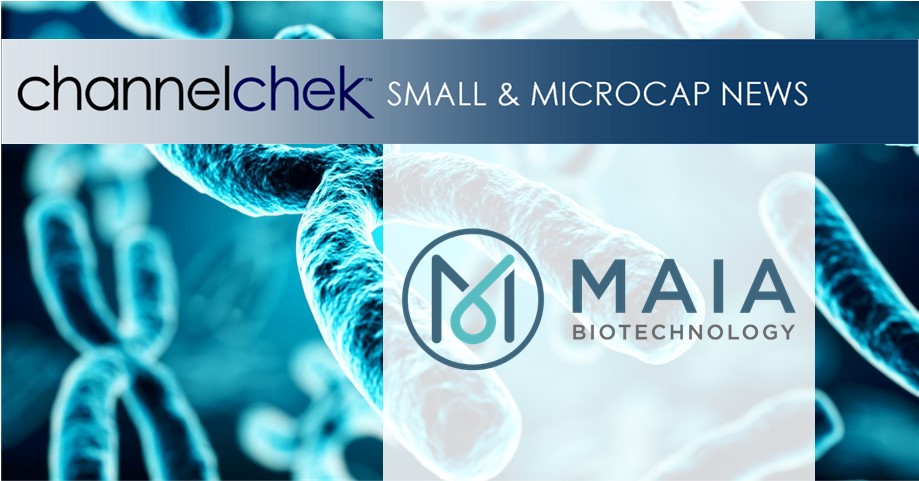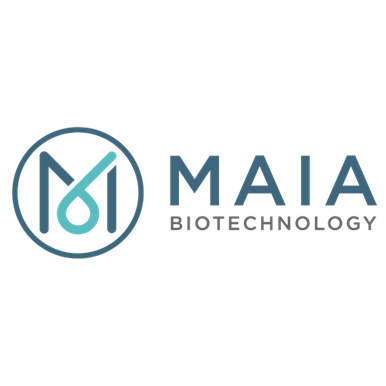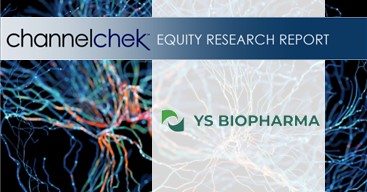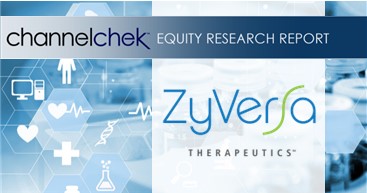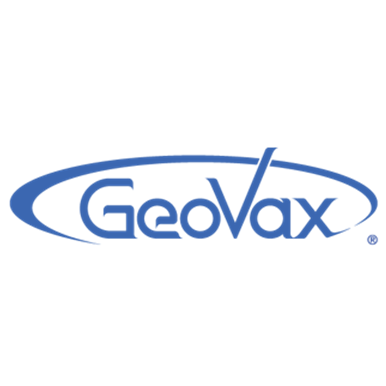
Research News and Market Data on GOVX
Atlanta, GA, January 29, 2024 – GeoVax Labs, Inc. (Nasdaq: GOVX), a biotechnology company developing immunotherapies and vaccines against cancers and infectious diseases, today announced that the Company’s Board of Directors has approved a reverse stock split of its issued and outstanding shares of common stock, par value $0.001 per share (the “Common Stock”), at a ratio of 1-for-15. The Company is effecting the reverse split to regain compliance with the $1.00 minimum bid price required for continued listing on The Nasdaq Capital Market under Nasdaq Listing Rule 5550(a)(2). The reverse stock split was approved by the Company’s stockholders at a meeting held January 16, 2024.
The reverse stock split will become effective on January 30, 2024 (the “Effective Date”), and the Common Stock is expected to begin trading on the split-adjusted basis on the Nasdaq Stock Exchange (“Nasdaq”) at the market open on January 31, 2024. Following the reverse split, the Common Stock will continue to trade under the symbol “GOVX”, and the Company’s publicly traded warrants will continue to trade under the symbol “GOVXW”.
On the Effective Date, every 15 issued and outstanding shares of the Company’s Common Stock will be converted automatically into one share of the Company’s Common Stock without any change in the par value per share. The total number of issued and outstanding shares of Common Stock will therefore be reduced proportionately from 29,757,823 shares to approximately 1,983,855 shares. On the Effective Date, the publicly traded warrants will be adjusted to require fifteen (15) warrants to be exercised to receive one (1) share of common stock at a price of $75 per share.
Immediately after the reverse stock split, each stockholder’s percentage ownership interest in the Company and proportional voting power will remain unchanged, except for minor changes and adjustments that will result from the rounding up of any fractional shares to the next whole number of shares. The rights and privileges of the holders of shares of Common Stock will be substantially unaffected by the reverse stock split.
About GeoVax
GeoVax Labs, Inc. is a clinical-stage biotechnology company developing novel therapies and vaccines for solid tumor cancers and many of the world’s most threatening infectious diseases. The company’s lead program in oncology is a novel oncolytic solid tumor gene-directed therapy, Gedeptin®, presently in a multicenter Phase 1/2 clinical trial for advanced head and neck cancers. GeoVax’s lead infectious disease candidate is GEO-CM04S1, a next-generation COVID-19 vaccine targeting high-risk immunocompromised patient populations. Currently in three Phase 2 clinical trials, GEO-CM04S1 is being evaluated as a primary vaccine for immunocompromised patients such as those suffering from hematologic cancers and other patient populations for whom the current authorized COVID-19 vaccines are insufficient, and as a booster vaccine in patients with chronic lymphocytic leukemia (CLL). In addition, GEO-CM04S1 is in a Phase 2 clinical trial evaluating the vaccine as a more robust, durable COVID-19 booster among healthy patients who previously received the mRNA vaccines. GeoVax has a leadership team who have driven significant value creation across multiple life science companies over the past several decades. For more information, visit our website: www.geovax.com.
Forward-Looking Statements
This release contains forward-looking statements regarding GeoVax’s business plans. The words “believe,” “look forward to,” “may,” “estimate,” “continue,” “anticipate,” “intend,” “should,” “plan,” “could,” “target,” “potential,” “is likely,” “will,” “expect” and similar expressions, as they relate to us, are intended to identify forward-looking statements. We have based these forward-looking statements largely on our current expectations and projections about future events and financial trends that we believe may affect our financial condition, results of operations, business strategy and financial needs. Actual results may differ materially from those included in these statements due to a variety of factors, including whether: GeoVax is able to obtain acceptable results from ongoing or future clinical trials of its investigational products, GeoVax’s immuno-oncology products and preventative vaccines can provoke the desired responses, and those products or vaccines can be used effectively, GeoVax’s viral vector technology adequately amplifies immune responses to cancer antigens, GeoVax can develop and manufacture its immuno-oncology products and preventative vaccines with the desired characteristics in a timely manner, GeoVax’s immuno-oncology products and preventative vaccines will be safe for human use, GeoVax’s vaccines will effectively prevent targeted infections in humans, GeoVax’s immuno-oncology products and preventative vaccines will receive regulatory approvals necessary to be licensed and marketed, GeoVax raises required capital to complete development, there is development of competitive products that may be more effective or easier to use than GeoVax’s products, GeoVax will be able to enter into favorable manufacturing and distribution agreements, and other factors, over which GeoVax has no control.
Further information on our risk factors is contained in our periodic reports on Form 10-Q and Form 10-K that we have filed and will file with the SEC. Any forward-looking statement made by us herein speaks only as of the date on which it is made. Factors or events that could cause our actual results to differ may emerge from time to time, and it is not possible for us to predict all of them. We undertake no obligation to publicly update any forward-looking statement, whether as a result of new information, future developments or otherwise, except as may be required by law.
| Company Contact: | Investor Relations Contact: | Media Contact: | ||
| info@geovax.com | paige.kelly@sternir.com | sr@roberts-communications.com | ||
| 678-384-7220 | 212-698-8699 | 202-779-0929 |
